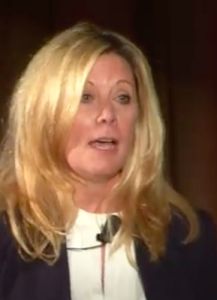
Recommendation
People lie all the time. Those who say they never lie, well, they’re lying. People tend to lie around 10 times a day, mostly to be polite or to avoid an uncomfortable conversation. But lies can be more consequential, so it matters if people are lying to you or telling you the truth. If you manage a business, you need to know, for example, if a job candidate is lying or if an employee is cooking the books. As former CIA officer Susan Carnicero explains in rollicking, hard-boiled commentary in this Digiday video, you can spot clear signals that can reveal a lie.
Summary
About the Speaker
A former security specialist with the Central Intelligence Agency, Susan Carnicero holds a master’s in forensic psychology and education.









Comment on this summary